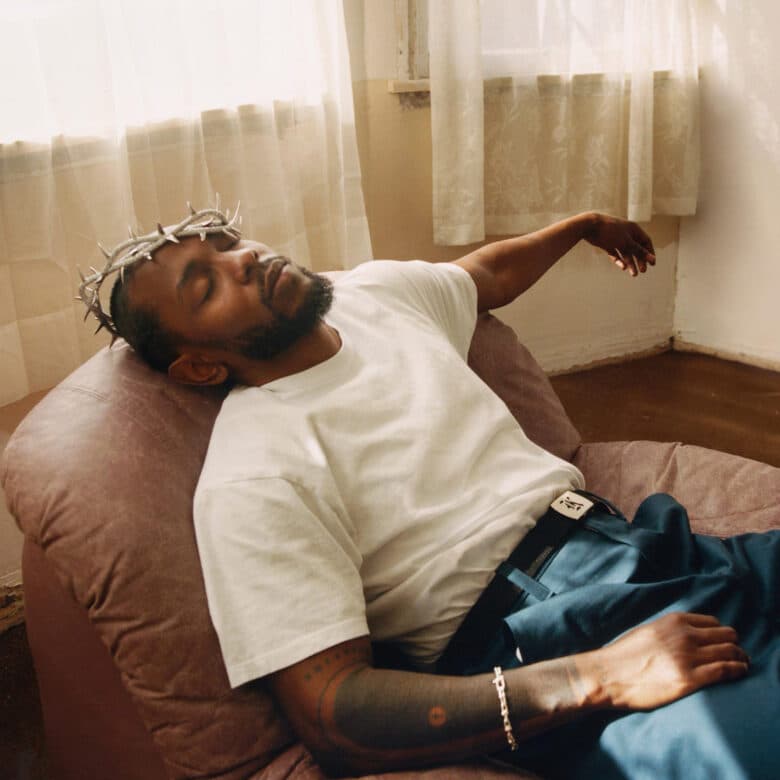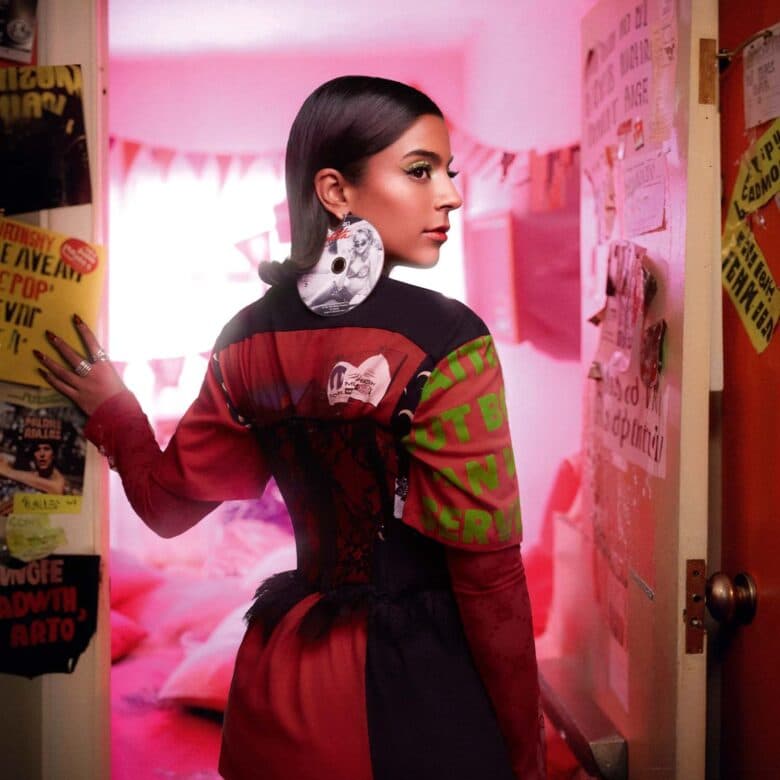Tim Burgess on his lockdown listening parties, relationship upheavals and his new solo album
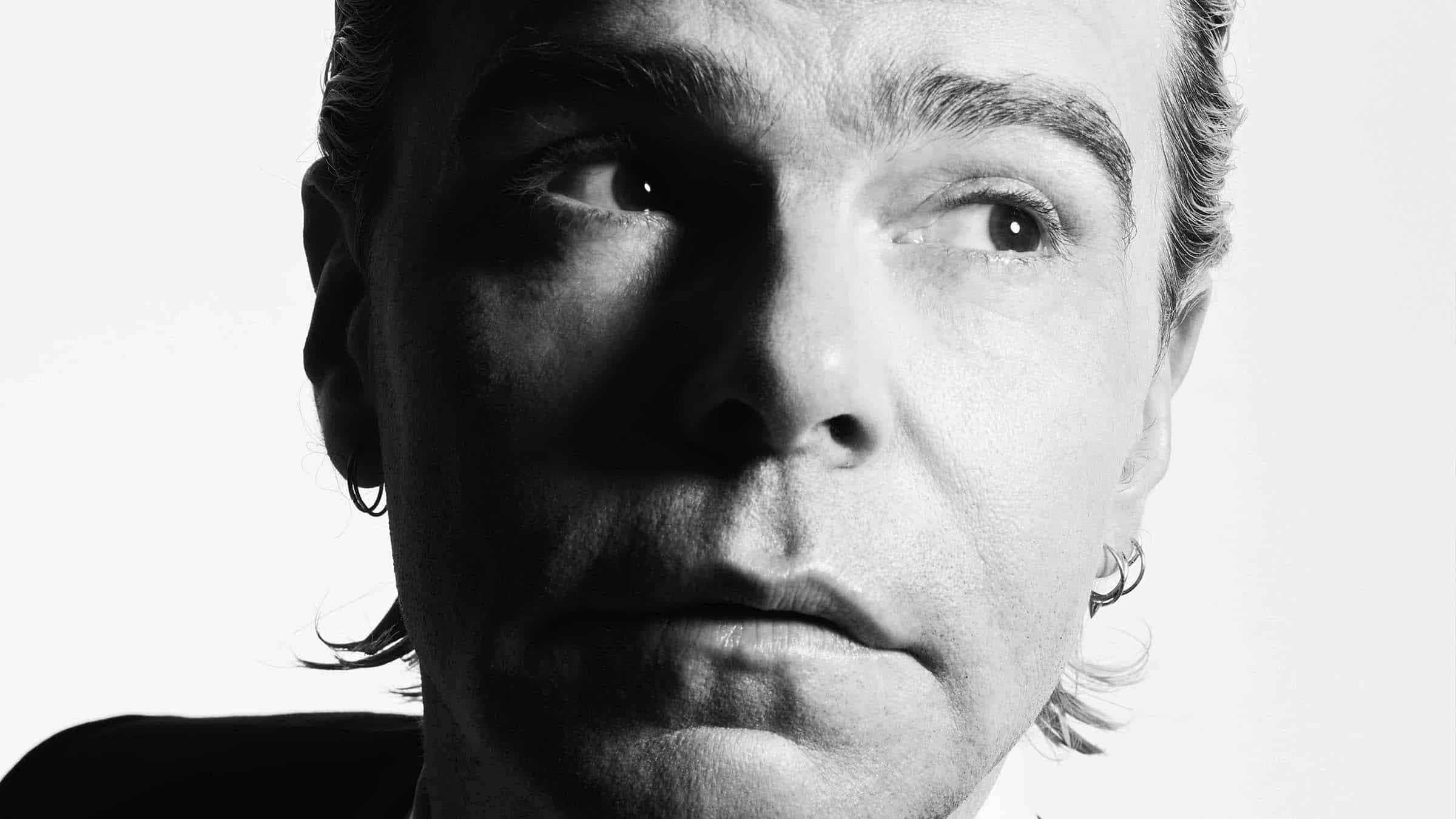
We’ve had a lot of celebrities visit the HUNGER office and studio, but the day Tim Burgess is due to arrive there’s an incomparable buzz. In fact, for weeks in advance, his name is dropped into meetings and conversations by colleagues who have nothing to do with the shoot. And there’s a real mix when it comes to the age, music tastes and interests of those who are “Just wondering what you’re going to do with his [instantly recognisable bleached] hair?” And “Can I bring something in for Tim to sign?” Burgess happily signed everything that was waved in front of him.
It’s this approachability, teamed with the ability to write a banging tune, that has scored him fans across the board. Those of a die-hard nature see their fandom stretch back to the hedonistic indie music days of the 1990s, when his band, the Charlatans, made headlines alongside Oasis and Blur. And they’re still going strong, having celebrated 32 years together with a sold-out mini-tour in May.
But what’s brought Burgess a newer and more varied worldwide audience is his social media prowess – and in particular the brilliant Tim’s Twitter Listening Parties, a platform that gave the music-loving masses a lifeline during lockdown – when gigs were off the cards and that IRL connection with the artists we love was taken away.
The listening parties are as genius in practice as they are cumbersome to explain on paper, but here goes: Burgess picks an album, we all press play at the same time and then turn to Twitter, where Burgess and the person (or people) responsible for making that album live tweet through each song, while those “listening in” comment and ask questions. “It was like a beautiful new insight into something that [fans] already knew,” Burgess says. “It was heartwarming, looking backwards in a way – but having a new spin.”
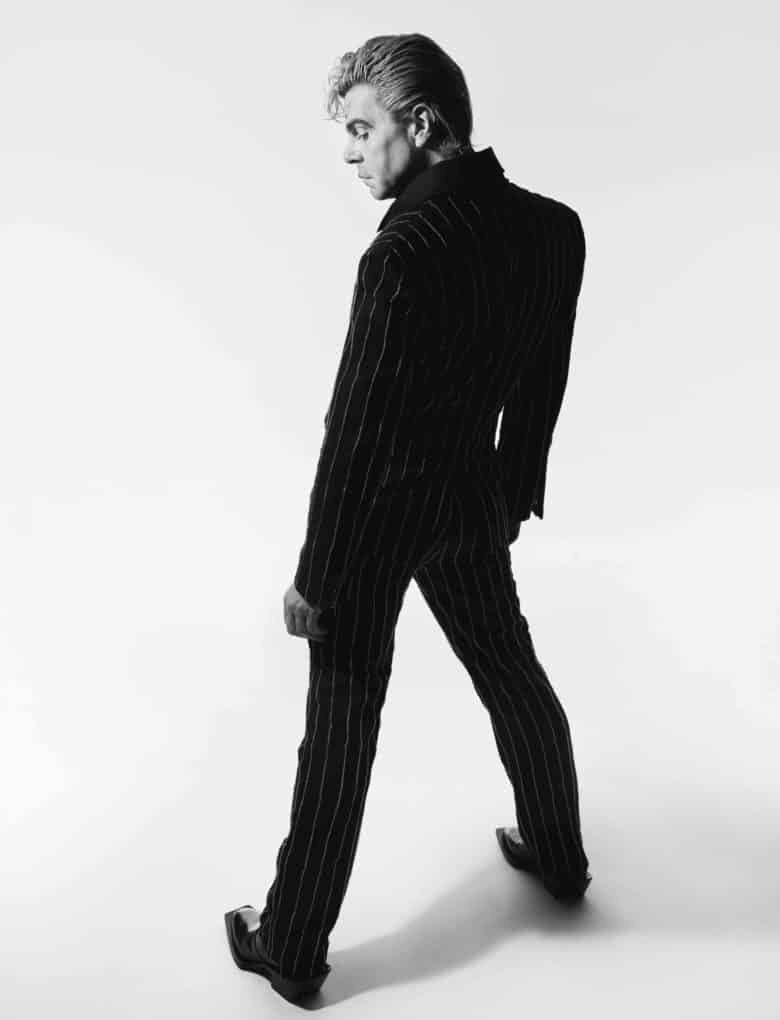
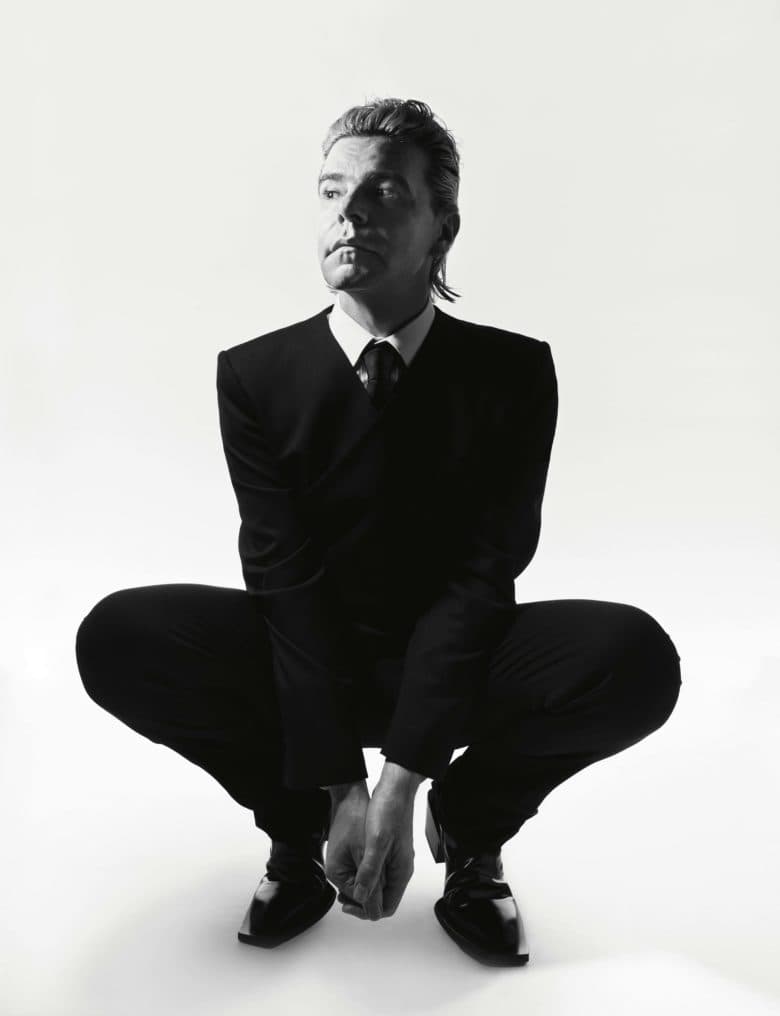
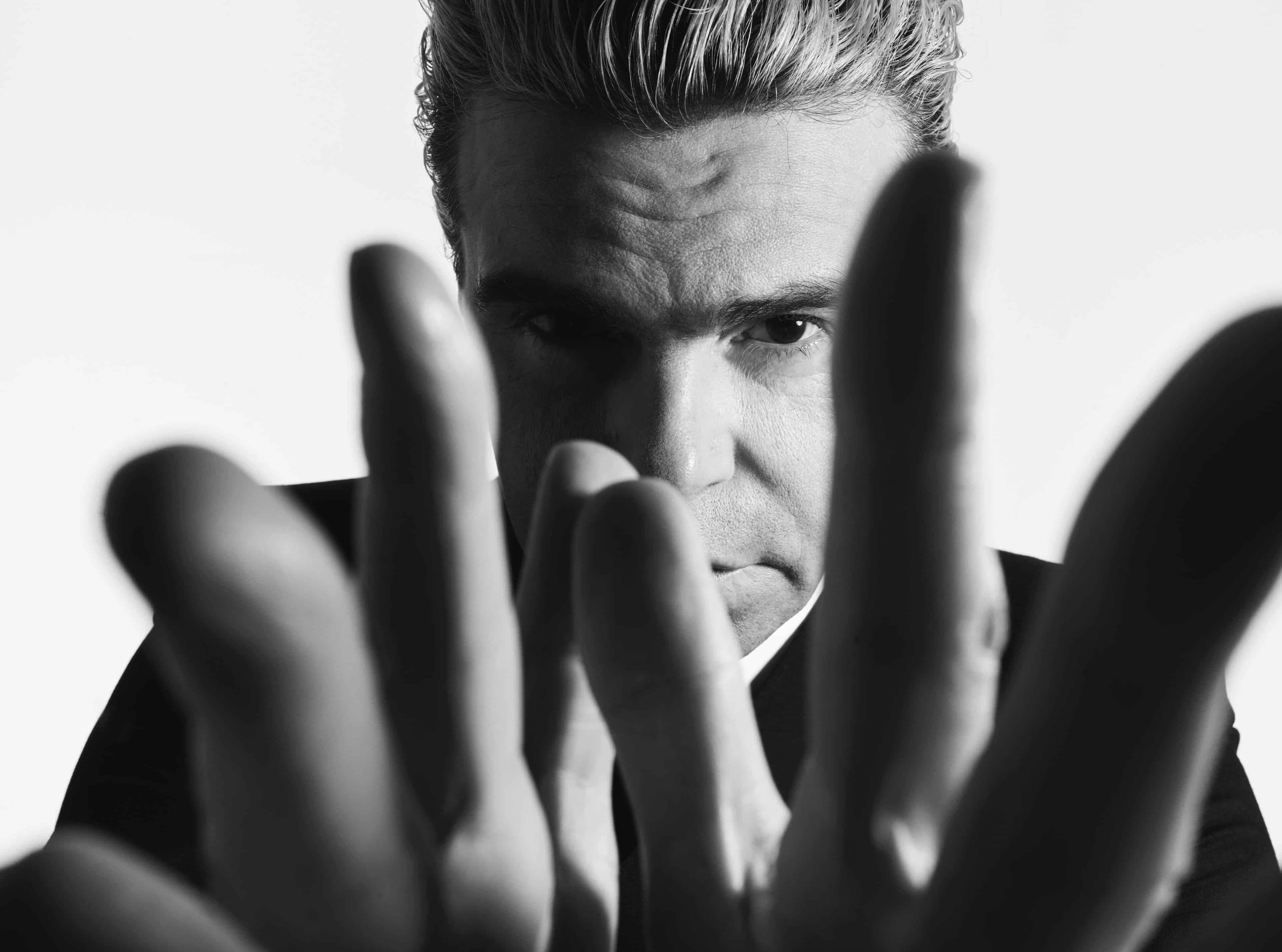
Guests have included everyone from the Style Council, the Libertines and Pulp to Kylie Minogue, Rick Astley, the Chemical Brothers and Killer Mike from Run the Jewels. The concept really found its crowd during the lockdowns but Burgess had road tested the idea long before, tweeting through the Charlatans’ back catalogue.
“Yeah, the Twitter Listening Parties started ten years ago. It’s the longest slow-burner of all time, I think,” he laughs. “I thought Covid was gonna last three weeks. So I thought I’d build something really solid and have three weeks’ worth of listening parties with people like Oasis, Blur and Prefab Sprout that I could go to really easily.”
But as we know the pandemic stretched on, and as lockdown, after lockdown hit, the appetite for the listening parties was insatiable. “Lots of people have said lots of amazing things about them, but one of the main things was because people couldn’t go to gigs and they wanted music, and they wanted more music,” Burgess says. “People have said things like I was showcasing the art form of an album, bringing it back from just tracks on a playlist, but I also just think it was the community element.”
And it’s a community that’s kept growing, the listening parties are still going on and number more than 1,100 now, and as well as releasing a book of some of the best tweets, Burgess has built a replay website where music lovers can listen again and follow the live tweets from the time (timstwitterlisteningparty.com). Burgess’s own community has also grown: followers of his social media accounts have doubled and include a few very famous names, such as Barack Obama. “He must like the listening parties or love my breakfast bangers,” Burgess laughs, nodding to his penchant for choosing a song for his followers to listen to in the mornings.
So does he have a favourite listening party? “The ones that were unexpected. Spandau Ballet’s ‘True’ was a favourite just because of how much detail Gary Kemp put into it. And Paul McCartney was amazing when that one happened,” says Burgess. “And Iron Maiden, because I don’t really know too much about them but they put so much effort into it, and it was the biggest one – on the replay element I think it went to something like 70,000 plays overnight, with a lot of the stats coming from South America.” But there are still a few names on his wish list. “I mean, Kate Bush can come along anytime, and RZA from Wu-Tang Clan – well, anyone from Wu-Tang!”
You would think the listening parties would have kept Burgess, who also runs his own record label and coffee brand, busy enough during lockdown but he also found time to write Typical Music – a new solo album of bouncy summer tunes, dreamy love songs and a mixture of beautiful, thought-provoking lyrics and cheerful chants. Having released his previous solo album, I Love the New Sky, not long after the pandemic started, he was originally unsure whether he would have inspiration so soon for another.
“I Love the New Sky was out in May. I’d done a couple of dates and showcases in America but had to get the last flight home before they closed the borders,” he remembers. “But I just felt really glad that I was able to at least play those songs before the album came out. But then there was no touring and I spoke to the boss at [the independent record label] Bella Union and he said, ‘You should write another album.’ I was like, ‘But there’s no inspiration,’ because I get inspired by the new people and new experiences during the touring of the album, but there were no new experiences during lockdown, and for a couple of months, I couldn’t think of anything, and then it all just started to come.”
Burgess says that changes in his personal life played a part: “At the beginning of writing [Typical Music], my dad died, a little time after, I separated with my partner, who’s also the mother of my son, and it was Covid. There was the listening parties – there was a lot going on.” I ask which songs are about which of those factors. “The songs are all about something but yet not anything at all, because I don’t really go and think, ‘I’m gonna write a song about this or I’m gonna address this.’ I don’t really do that. I just let the music inform the melody and then the melody inform the words and then try to piece it all together. I just do what I like – explore things with no restrictions.”
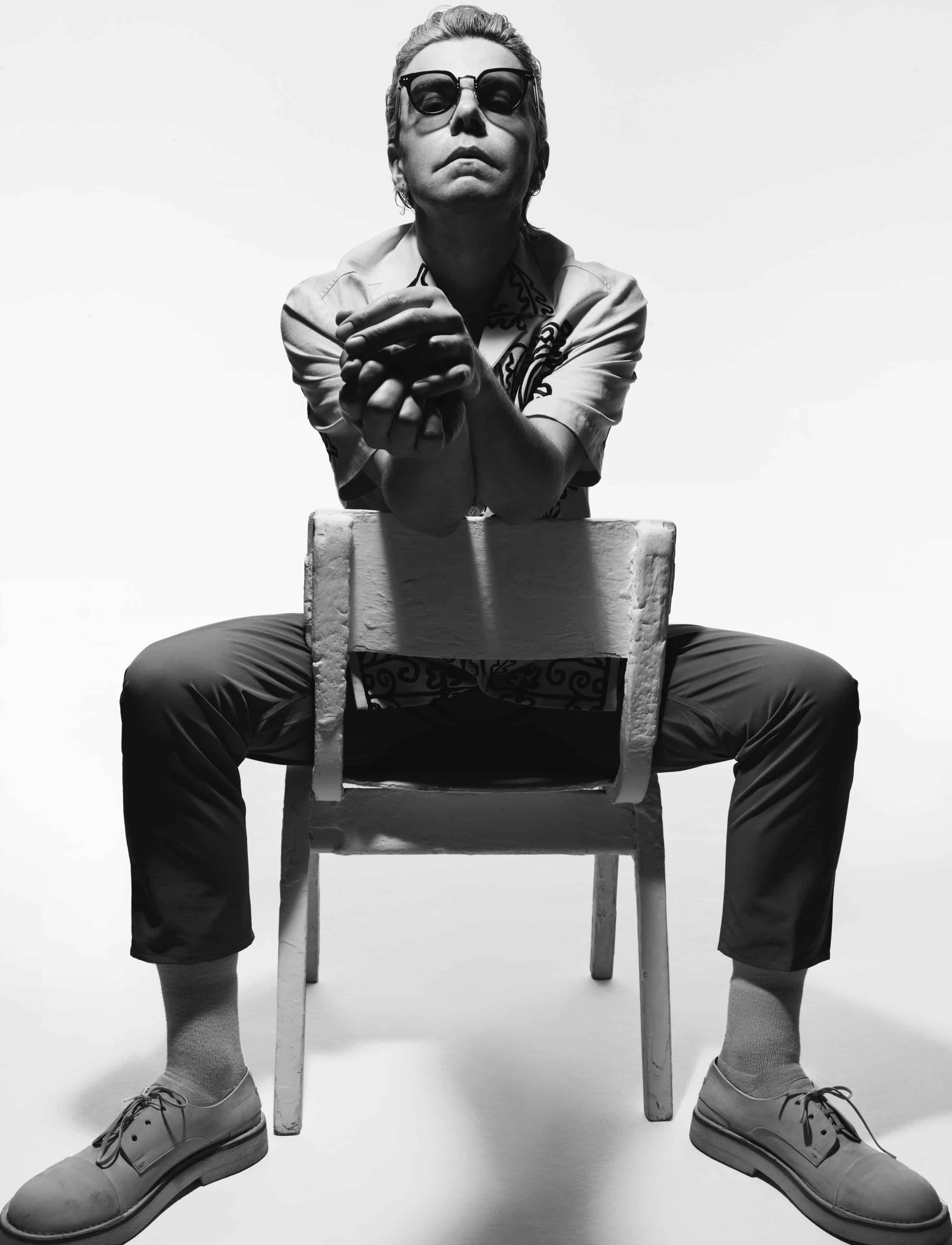
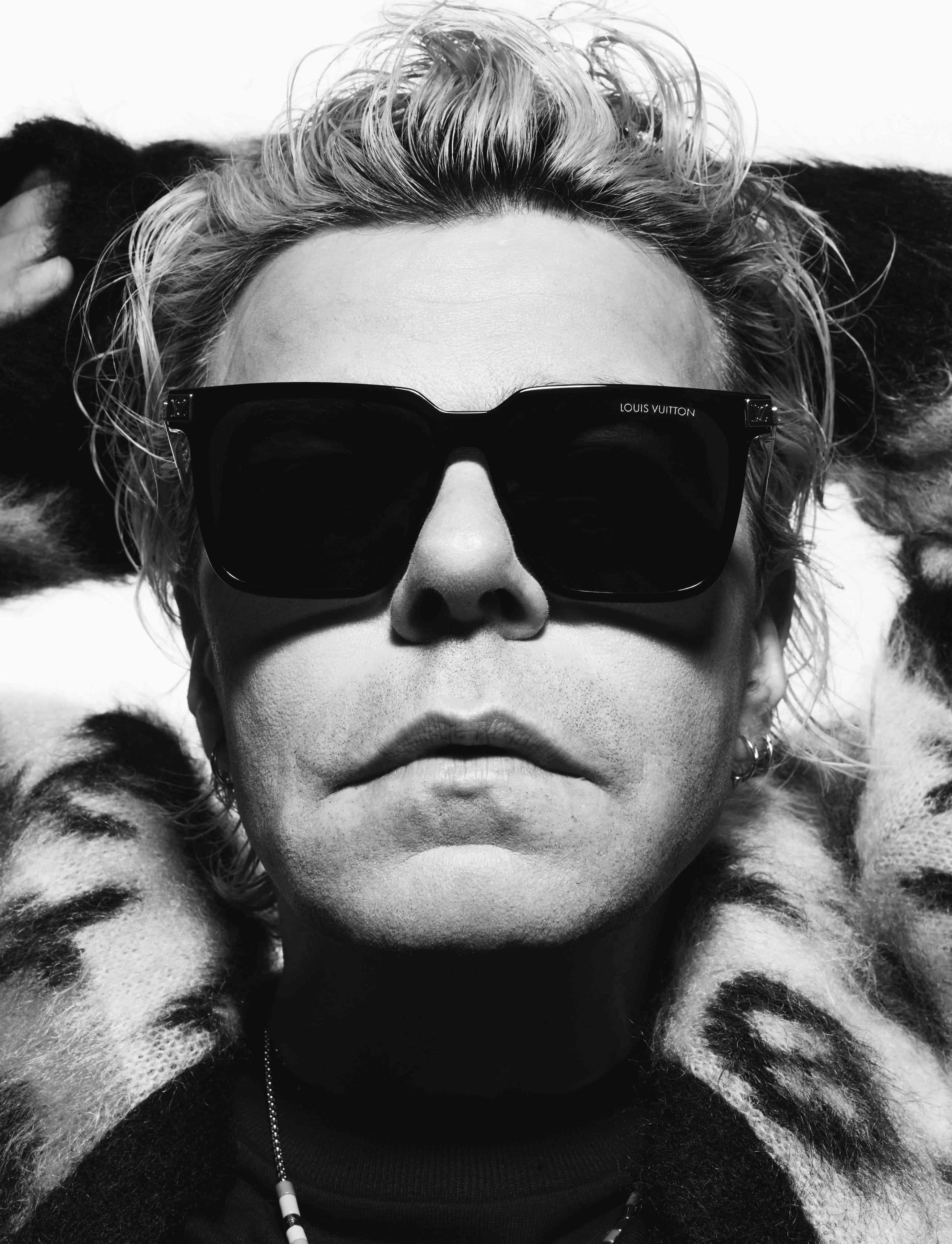
The songs came thick and fast – in fact, 22 tracks have made the final cut, but ongoing Covid restrictions meant the orchestral sound Burgess had dreamt of recording was going to prove difficult to produce. “I tried to create a mass amount of colour during a time that was really grey, a real intense joy during a time that wasn’t like that,” he says. “I tried to build this hermetically sealed spaceship with just two other people – Thighpaulsandra and Daniel O’Sullivan – at Rockfield Studios. We made an orchestra, just the three of us.”
And recording at the world-famous Rockfield Studios in Monmouthshire, Wales, came with more than just pandemic-induced pressures. In 1996, the grounds of the studio were where the Charlatans’ original keyboardist, Rob Collins, died in a car accident while the band were recording their fifth studio album, Tellin’ Stories. Burgess hasn’t recorded at the studio since. “He died at the driveway of Rockfield. So every morning I would walk down the driveway and think about those times. It was kind of a way of dealing with that. We recorded nearly all the albums up to Tellin’ Stories at Rockfield or half a mile up the road at Monnow Valley. All the other bands came and went, but we were like a mainstay, we didn’t really go home. We just stayed and recorded and recorded, that was our bubble really. And obviously, after Rob died the bubble burst. And that was in some ways, like, end of phase one.”
Burgess tells me about a new phase of his own that he entered in 2006, when he decided to leave drink and drugs behind. His hedonistic life and excessive use of cocaine have been well reported, most famously the story of him and his tour buddies blowing cocaine up each other’s arses – bringing the term “cocainus” to the masses. “It got to a point where I’d been drinking all through the Nineties – I used to go to the Haçienda in the Eighties too – and it was just like drinking and drugs and lots of eupho- ria, but it’s trying to keep that euphoria up,” Burgess says. “And through the early years of The Charlatans that level went up and up until I thought, ‘This is just not helping. I don’t look good in the mirror, I don’t recognise myself so much.’ I got to the point where I wasn’t happy. So I quit.”
Burgess also took up transcendental meditation. “I find it just helps me to maintain a certain organisation in my brain, a certain level of focus, and also just to be kind of similar in every situation, a similar kind of calmness,” he says. “It doesn’t mean that you lose your edge or anything like that. It just means that you know whatever situation you’re in, whether it’s raining or you see someone in a fight and you try to break it up, just that level of the sameness. Whereas I suppose, if I was drinking, which I did quite a lot, I would wake up and no one would know what kind of mood I was going to be in. Now people can say, ‘He’s always the same,’ and I like that. Because it means that anyone can come to me at any time and ask me a question and I’ll be on a certain level.”
And maybe being sober has helped Burgess, whose drinks of choice now are “alcohol-free Guinness – that still gives me a bit of a buzz – or a good old Diet Coke”, stay relevant. Whereas many Nineties Britpop bands have been consigned to a historical hall of fame, the psychedelic rock sound of the Charlatans has stood the test of time, while Burgess’s experimental solo material moves with the times. How does he manage it? Burgess pauses, admitting it’s a difficult question to answer about yourself: “Well, I’m interested in the world and the times, and I feel that I’ve got a voice. I’m interested in other people’s work. I’m definitely outward-looking. I think my general outlook is one of just looking around, wanting to be involved.”
And looking around means seeing what’s happening to other people. His Twitter feed is peppered with comments about everything from partygate and the cost-of-living crisis to US gun laws. “I do comment on politics a little bit on Twitter, but I’m not really that politically inclined. But I do think about people, so I’ll comment when it becomes annoying to me. You know, when people get annoyed.”
As our interview comes to a close, and I accept that my day hanging out with one of my musical heroes is winding down, I remember the theme of the issue and ask the man who gave us the freedom to explore music in such an innovative way during lockdown what freedom means to him. There’s another pause before he answers. “To me, it’s being able to have a cup of coffee at any time of the day.” He bursts out laughing when I tell him that’s not always possible. “No, it’s not always possible,” he laughs again. “Just like freedom is not entirely possible. I feel free when I get lost in a show. I feel free to play any note that I want on the guitar. And these days when I’m playing in my solo band, I feel free to explore music by just finding a chord, followed by melody, followed by lyric that takes you to the next chord and melody, and you don’t know where you’re going. And I think that’s kind of a good way to live life as well, like not really know where you’re going next.”
They’re profound words from Burgess to close our chat, but he’s probably right – being free is essentially about not knowing what’s coming next, but being able to embrace that and make it work.
Typical Music will be released on 23 September on Bella Union; the title track is out now.
This story appears in HUNGER Magazine’s Freedom issue.
